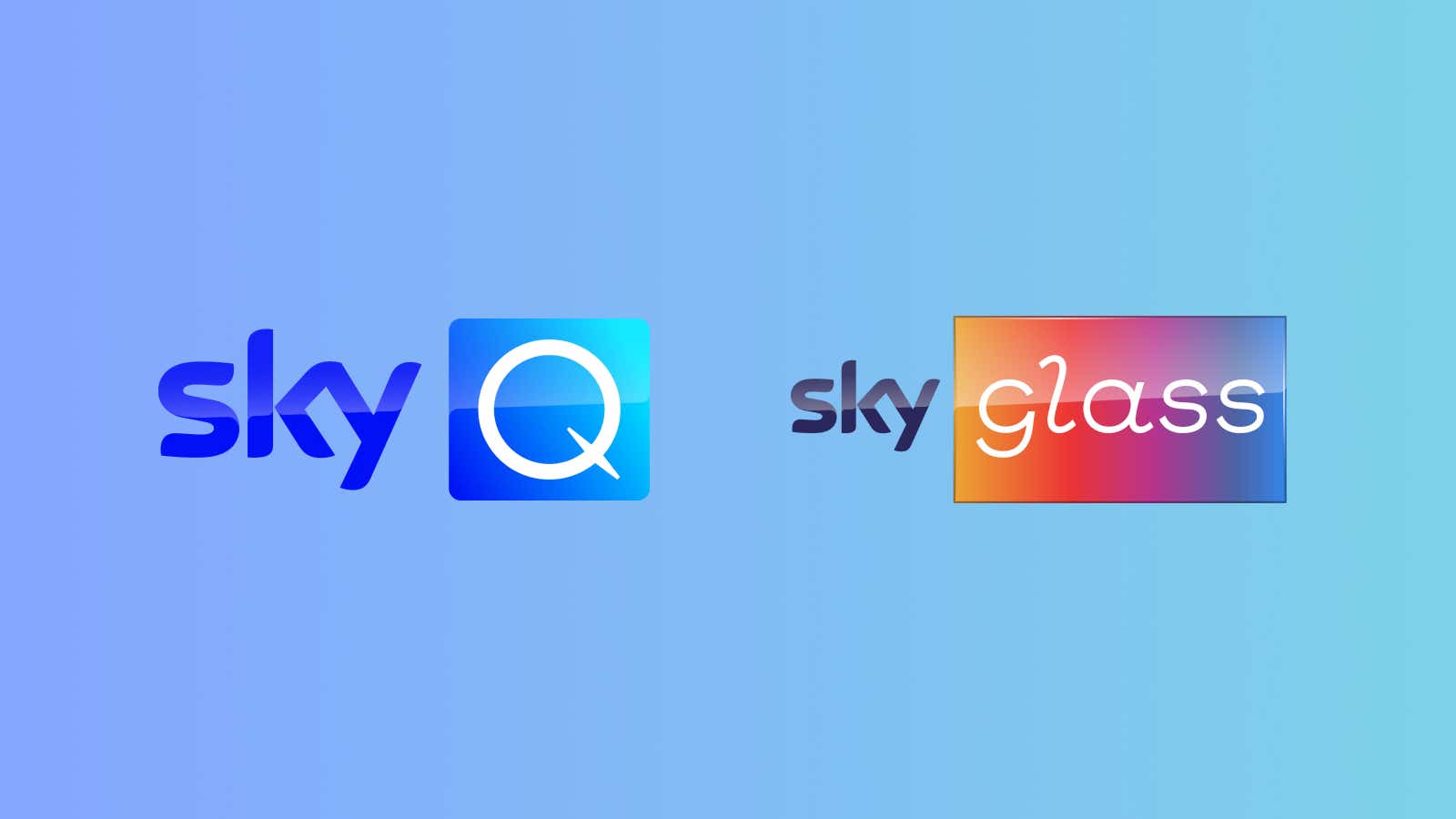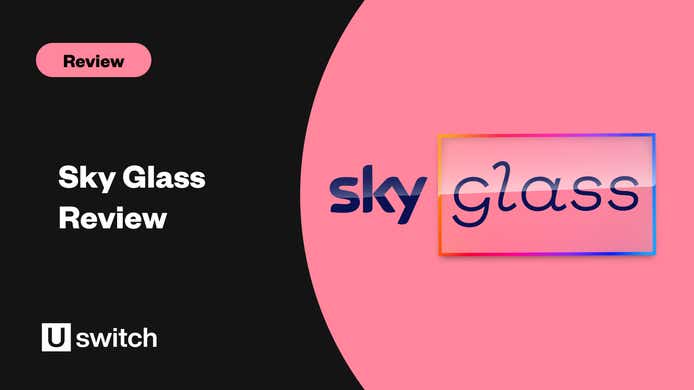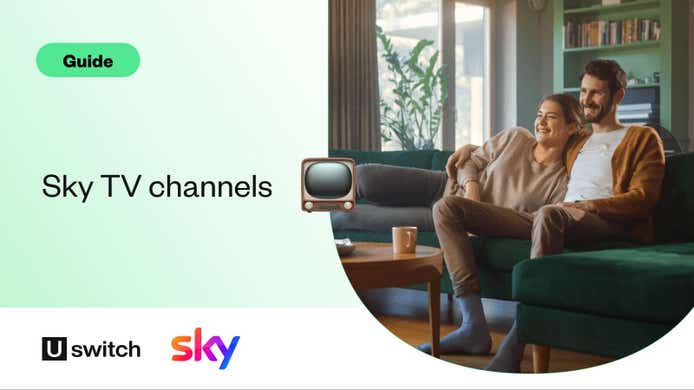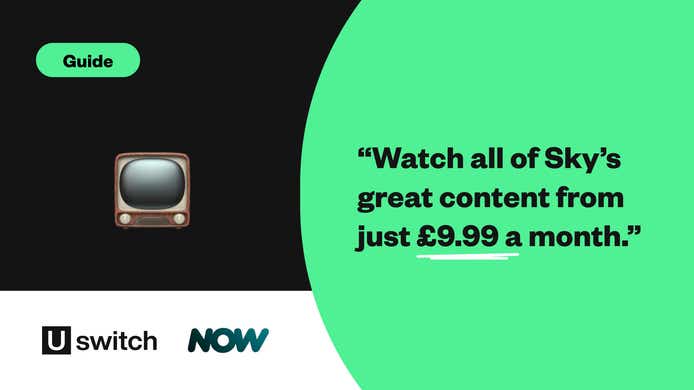Sky Glass pros and cons
You don’t need a dish
Great design
All-in-one setup- no need for a set-top box or cables
Impressive sound system
New intuitive functions, such as the Playlist feature
More energy efficient than having a TV and set-top box setup
Voice control include
Monthly subscription options are available
Expensive at the start
You need a reliable broadband connection
No record function and limited storage capacity
Limited selection of apps
How is Sky Glass different from Sky Q?
Sky Glass is Sky’s very own smart TV, which comes with the Sky interface pre-installed. In many ways, it acts just like a regular smart TV, with other apps available to access other types of online content. This means you can get everything from BBC iPlayer and Netflix to Spotify and Disney Plus.
However, Sky Glass is the only smart TV that gives you full access to the Sky interface without the need for a Sky Q set-top box. You can stream all of Sky’s content via your internet connection, without the need for a satellite dish or any equipment other than your Wi-Fi router.
Sky Q is now being retired as a product as the company moved away from satellite TV to broadband and streaming-based TV connections. It's still operational for millions, but difficult to sign up for as a new customer.
Sky Q vs Sky Glass: Contract length
Sky still operates with longer-term contracts, so when you sign up for traditional Sky TV with a Sky Q box, you’ll most likely sign an 18-month contract. But this has quite a few limitations when it comes to changing your subscription.
If you sign up for a Sky Q contract, you’ll have to choose which channels you want to subscribe to for the full length of your contract. There are a few options to add on additional channels on a month-by-month basis, but most will require an 18-month commitment.
In fact, if you change your TV subscription during your contract, you’ll often be made to re-sign for an additional 12 to 18 months.
Sky Q vs Sky Glass: Cost
Comparing Sky Glass and Sky Q by cost is complicated. While they both give you access to all the Sky TV content you could want, the biggest expense when getting Sky Glass is the cost of the actual TV.
Sky Glass setup costs
A 43-inch smart TV could cost anywhere between £200-£500, while the Sky Glass 43-inch TV costs £649 in total. However, if you’re after a 4K TV and add on the cost of a decent soundbar to match the audio quality of Sky Glass – often around £200 to £300 itself – the jump in cost is significantly smaller. So a Sky Glass device definitely isn’t the cheapest way to get the full Sky setup, especially if you already have a TV you’re happy with.
See the latest Sky TV deals
Watch the best of US and international TV on Sky Q or Sky Glass
Sky Glass subscription costs
| Sky TV channels | Sky Q or Sky Glass | Cost per month |
|---|---|---|
| Sky Ultimate TV (standard Sky TV entertainment channels and Netflix basic) | Sky Glass & Sky Q | £26 |
| Sky TV & Cinema | Sky Glass & Sky Q | £37 |
| Sky TV and Sky Sports | Sky Glass & Sky Q | £41 |
| Sky TV, Sports and Cinema | Sky Glass & Sky Q | £52 |
| Fast forward option | Sky Glass | additional £5 (free for the first year) |
| Whole home multiscreen | Sky Glass | additional £10 + cost of each Sky Stream Puck |
| Sky HD | Sky Glass & Sky Q | additional £7 |
| Ultra HD | Sky Glass & Sky Q | additional £11 |
| Multiscreen | Sky Q | additional £15 |
| Kids channels | Sky Glass & Sky Q | additional £5 |
| BT Sport | Sky Glass & Sky Q | additional £27 |
Sky Glass vs Sky Q total streaming cost
Because of the flexible nature of TV subscriptions on Sky Glass, the total streaming costs could work out much lower.
Monthly subscriptions give you the option to pick and choose each month what content you want to be able to watch. You can add Sky Cinema in December, watch all the Christmas movies you want and then cancel, saving yourself £11 a month or £121 a year.
You could also add on Sky Sports and TNT Sports for the Premier League and then cancel once the season ends. However, you will have to remember to upgrade and downgrade each month in order to make the most of Sky Glass’ flexibility.
Sky Q vs Sky Glass - Setup
Sky Glass pulls ahead of Sky Q because, when it comes to simplicity of the setup, you just need to plug Sky Glass into a power socket and you’re good to go. The biggest appeal of Sky Glass is the all-in-one design.
Since there’s no need for a satellite dish, there’s no set-top box. This means no lengthy installation process, no permission required from the landlord or logistics to figure out if you’re on the 10th floor in a block of flats.
The time between taking it out of the box to streaming your favourite shows is a matter of minutes. You just unpack, mount it on its stand and plug it in – and the Sky delivery team will even do that for you. There’s a quick animation and you’re asked to connect to a Wi-Fi network.
You then log into your Sky account and you’re ready to start streaming. You can also connect to the internet with an ethernet cable, which is a good option if your Wi-Fi is spotty, but it kind of defeats the point of fewer cables in your home.
Sky Q vs Sky Glass - viewing experience
While the interfaces are pretty much identical, there are a few key differences to the viewing experience of Sky Glass and Sky Q.
You can’t record programmes
Like other streaming services, Sky Glass doesn’t record TV shows and films in the same way Sky Q does. Sky Glass gives you the option to add a show or film to your playlist which you can stream on-demand.
The biggest downside of this is that, after a certain amount of time, the show or movie may no longer be available to stream on-demand. Unlike a programme you record and save on your Sky Q box, you will have a limited window when you can catch up with your queued content.
You can’t skip ads unless you pay
A huge benefit of recording a load of TV shows to binge at your leisure is the ability to fast-forward through the adverts. When streaming on Sky Glass, however, this isn’t an option unless you pay an additional £5 a month.
This option will be free for the first year, but it’s worth keeping in mind how your long-term viewing experience could be impacted.
Multiroom is an extra cost
Like Sky Q, Sky Glass does offer multiroom options for an additional fee. You would have to pay £10 a month for the Whole Home pack as well as £50 for a Sky Stream Puck, which can plug into any TV.
Is Sky Glass worth the money?
Sky Glass’ value lies in its simplicity. There’s no lengthy installation process, no dish or cables needed, no set-top box or soundbar you need to find a home for. You simply plug it in, connect it to your Wi-Fi and you’re good to go.
It’s an elegant solution for those who want full access to all of Sky’s great TV content without longer contracts or long-term changes to your property that your landlord might not approve of. However, with Sky Glass, you’re paying for both a product and a service. If you already have a high-end smart TV and sound system, there won’t be much value in buying another one just to avoid additional cables.
See the latest Sky TV deals
Watch the best of US and international TV on Sky Q or Sky Glass
FAQs Sky Q vs Sky Glass
FAQ: Do I need Sky Broadband to use Sky Glass?
No. You can use Sky Glass with any broadband connection.
FAQ: What internet speed do I need for Sky Glass?
Sky Glass will work fine with most standard internet connections of at least 10Mbps. But we typically recommend at least 30-40Mbps if you’re streaming regularly. If you want to watch Sky content in HD or UHD (also known as 4K viewing), you might want a broadband deal with a little more bandwidth. Otherwise, you might struggle with slow speeds and buffering if someone else is using the internet at the same time.




